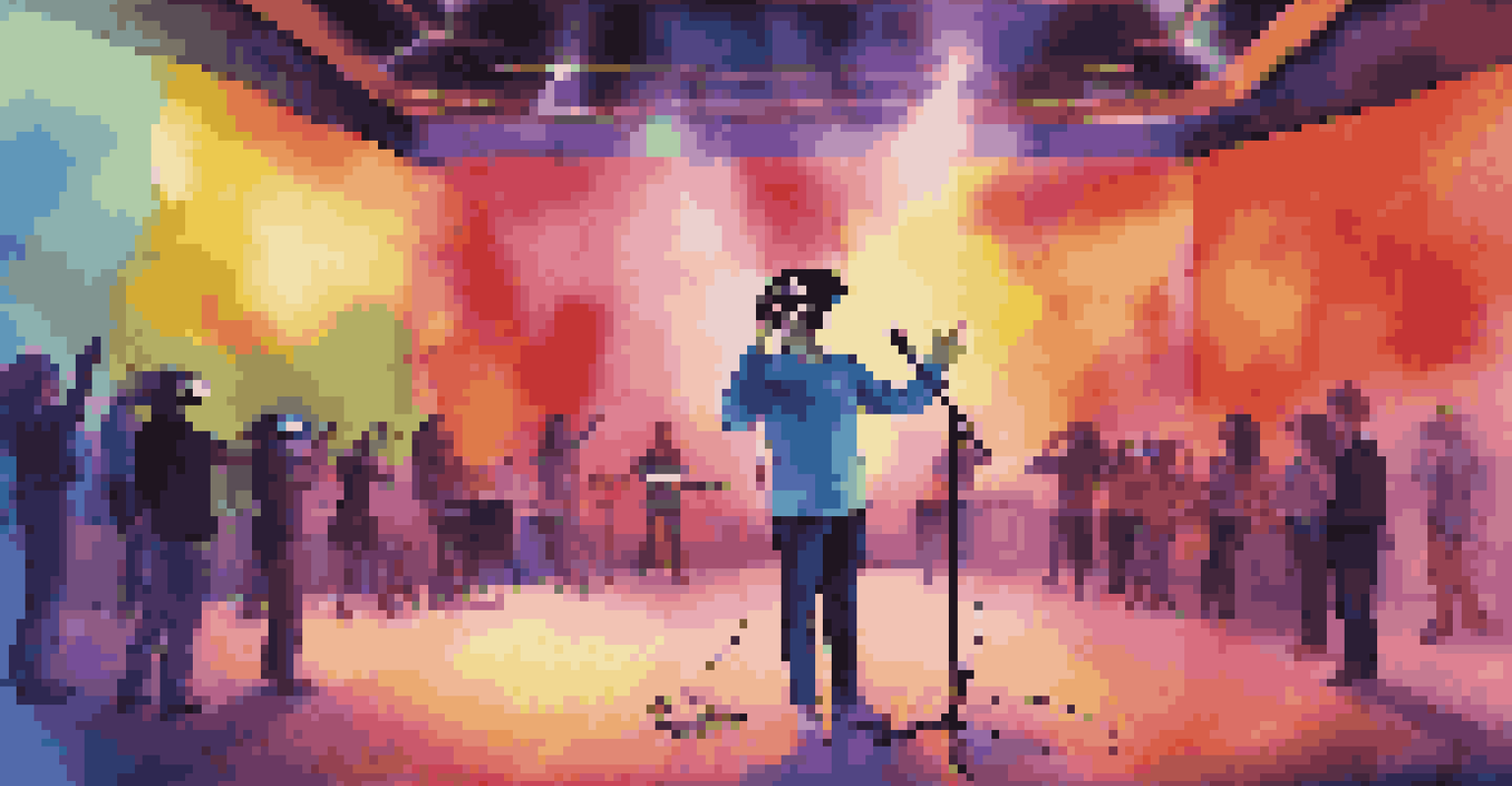Using Technology to Improve Vocal Techniques and Training

Understanding Vocal Techniques and Their Importance
Vocal techniques are the essential skills that allow singers to produce sound effectively and healthily. From breath control to pitch accuracy, these techniques form the foundation of any vocal performance. Without a solid understanding of these fundamentals, singers may struggle to perform at their best.
The voice is the instrument of the soul.
Good vocal technique not only improves sound quality but also protects the vocal cords from strain and injury. Just like an athlete trains their body, vocalists need to train their voices to withstand the rigors of singing. This is where technology can step in, offering tools to enhance and refine these techniques.
Incorporating technology into vocal training can make learning more efficient and engaging. With the right tools, singers can receive instant feedback and track their progress over time, making it easier to identify areas for improvement.
The Role of Apps in Vocal Training
Mobile apps have revolutionized the way singers approach their practice. Vocal training apps often include a range of exercises designed to improve various aspects of singing, such as pitch, tone, and breathing techniques. They provide a convenient way to practice anywhere, anytime, making vocal training more accessible.

Many of these apps utilize advanced technology like pitch detection and vocal analysis to give singers immediate feedback on their performance. For example, singers can see how accurately they hit notes and make adjustments in real time. This instant feedback loop can significantly accelerate the learning process.
Moreover, some apps offer personalized training programs based on individual needs and goals. By tailoring exercises to the user, these apps can help singers focus on their weak points, creating a more efficient training experience.
Using Vocal Coaches and Online Resources
While technology has made self-training more accessible, working with a vocal coach remains invaluable. Many vocal coaches have embraced technology, offering online sessions that can be just as effective as in-person lessons. This flexibility allows singers to connect with experts from anywhere in the world.
Technology is best when it brings people together.
Online platforms and video tutorials further enhance the learning experience, providing an abundance of material for singers at every level. Whether it’s mastering specific techniques or exploring different singing styles, there’s no shortage of resources available online.
Additionally, many coaches utilize recording technology to analyze their students' performances. By listening to recordings, they can pinpoint areas for improvement, making lessons more targeted and effective.
The Benefits of Recording Technology
Recording technology is a powerful tool that allows singers to listen to their own voices critically. By recording practice sessions, singers can identify pitch issues, inconsistencies in tone, and areas requiring more control. This self-analysis can be eye-opening and is a key step in the journey of vocal improvement.
With the evolution of recording devices, even smartphones can capture high-quality audio. This accessibility means that singers can easily track their progress over time, allowing them to celebrate improvements and set new goals.
Moreover, sharing recordings with coaches or peers can foster constructive feedback and support. When singers hear their progress through recorded sessions, it can boost confidence and motivate them to keep pushing their boundaries.
Exploring Vocal Effects and Technology in Performance
Technology isn’t just for practice; it also plays a significant role in live performances. Vocal effects processors can enhance a singer's sound, adding reverb, delay, or harmonies that elevate the overall performance. These tools allow singers to explore their creativity and express themselves in new ways.
For many performers, integrating technology into their act can create a unique sound that sets them apart. Think about how artists use pitch correction or looping devices to build layers of sound live on stage. It’s a modern twist that engages the audience and showcases vocal versatility.
However, it’s essential for singers to use these technologies judiciously. While they can enhance a performance, relying too heavily on effects can mask vocal weaknesses. Balancing natural talent with technological enhancements is key to delivering an authentic performance.
Virtual Reality and Immersive Training Experiences
Virtual reality (VR) is transforming how artists engage with vocal training. By immersing singers in a simulated performance environment, VR can help them practice under realistic conditions. This technology can alleviate performance anxiety by allowing singers to rehearse in front of a virtual audience.
With VR, singers can experiment with different scenarios, such as singing in various venues or dealing with distractions. This kind of immersive training can enhance confidence and prepare them for real-world performances.
As this technology continues to develop, the possibilities for vocal training are expanding. Imagine being able to work on your technique in a virtual opera house or collaborating with other singers in a shared digital space.
The Future of Vocal Training with Technology
Looking ahead, the future of vocal training is bright with technological advancements. As artificial intelligence (AI) continues to evolve, we may see even more personalized training programs that adapt in real-time to a singer's performance. This could revolutionize how singers learn and grow.
Moreover, the integration of wearable technology could provide singers with data on their vocal health and performance metrics. This information would help them make informed decisions about their training and avoid potential strain or injury.

Ultimately, the goal of using technology in vocal training is to empower singers. By combining traditional techniques with innovative tools, singers can enhance their skills and express themselves more freely in their art.